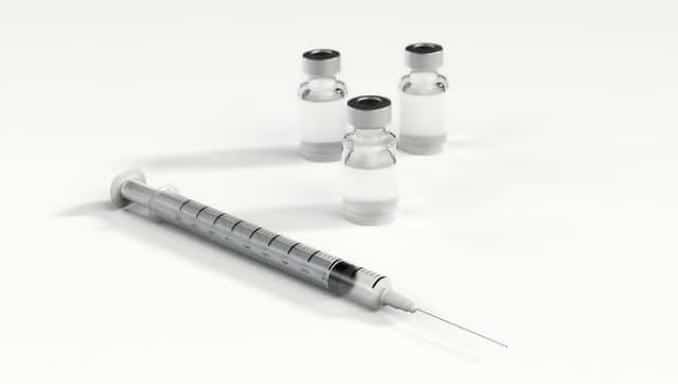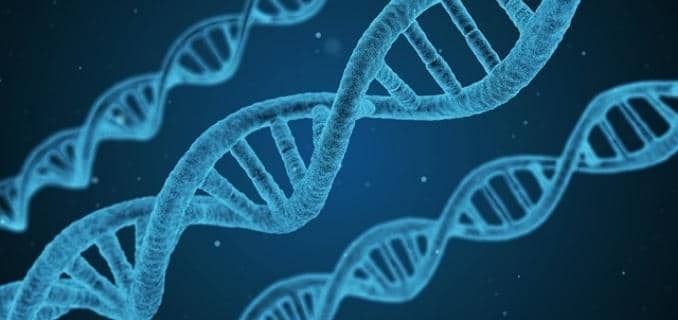
How credible is the health information you read online?
Health Feedback, a network of scientists, worked with the Credibility Coalition to examine the scientific accuracy of health news articles available online. They looked at popular health articles from many well-known websites including The Huffington Post, Daily Mail, NPR, Time magazine, CNN and more.
Results showed that of the 10 most shared articles in 2018, three quarters included some false information or were misleading in general. Only three were found to be highly credible, all of which were published by Time magazine.
Some of the errors included misinterpreting study findings, overstating those findings or failing to include important details. The three articles that received the lowest ratings contained major inaccuracies.
The researchers then examined the top 100 most popular articles published in 2018 and found slightly less than half achieved a high credibility rating.
Misinformation about health matters can be particularly dangerous as people are likely to take that information and use it to make decisions about their daily habits. In an article published in the American Medical Association Journal of Ethics, researchers noted that the pervasive availability of false information could nurture false beliefs about medicine, disease, and prevention and stated it was “largely up to consumers to determine the quality and reliability of the information.”
To help, we’ve gathered seven of the most common health myths that now persist because of misinformation spread online.
Myth 1 ― Vaccines Can Cause Autism
A 1998 article published in the journal Lancet started this myth. In that study, Wakefield and colleagues investigated only 12 children with developmental disorders, then reported that the parents of eight of those children blamed the problems on the measles, mumps, and rubella (MMR) vaccine. The authors concluded that “possible environmental triggers” ― such as the vaccine ― were associated with developmental disorders.
Not only was this study far too small to draw any conclusions, but it was also later revealed that the children in the study were carefully selected and that the research was funded by lawyers acting for parents who were involved in lawsuits against vaccine manufacturers. The British General Medical Council found that Wakefield had acted unethically and had shown “callous disregard” for the children in the study.
When the news got out on the internet, however, it was quickly picked up by the general media and soon created new concerns about vaccines.
In 2010, Lancet retracted the paper, stating that it was “now clear” that several elements were incorrect. More recently, the journal Lab Medicine retracted a related research paper by Rimland and McGinnis, which relied heavily on Wakefield’s discredited study.
In an editorial announcing the retraction, the editor-in-chief of the journal at the time, Roger L. Bertholf, Ph.D., and Pietro Ghezzi, Ph.D., stated, “Flawed studies that remain in the literature can be harmful when these studies are used by nonscientists to support conclusions that have long since been discredited by subsequent studies.”
Meanwhile, a multitude of much larger and more ethical studies have shown that vaccines are not associated with autism. In 2002, for example, the New England Journal of Medicine published a study of more than 537,000 children, more than 440,000 of which had received the MMR vaccine and compared those with autism who were vaccinated against those who were not. They found no association between the vaccine and autism and concluded, “This study provides strong evidence against the hypothesis that MMR vaccination causes autism.”
Even studies funded by “anti-vaxx” groups have failed to find a connection. In 2015, for example, researchers split subjects into different groups and administered various vaccines, then analyzed behavior and brain changes. They found no difference between those who took the vaccines and those who didn’t.
Myth 2 ― Eggs Are Bad for Your Heart
Scientists thought that eggs were bad for people for a long time because egg yolks contain cholesterol. The theory was that if you consumed that cholesterol, it would spike cholesterol levels in your blood. Since cholesterol is one of the substances that can cling to the inside of arteries and cause heart disease, scientists believed it would be best to avoid eating high-cholesterol foods.
Recent large studies have debunked this theory, however. Researchers have followed hundreds of thousands of people over decades and did not find that those eating up to one egg a day experienced any higher risk of heart attacks or strokes than those who didn’t eat eggs.
Scientists now realize that the cholesterol in the foods you eat and the cholesterol in your blood are only weakly related. Most of the cholesterol in the body is made by the liver naturally — it doesn’t come from what we eat. Instead, the liver makes cholesterol when stimulated primarily by saturated fat in the diet, not dietary cholesterol. By the way, eggs are low in saturated fat.
Eggs also contain many nutrients, including:
- Lutein and zeaxanthin: Antioxidants that are critical for eye health
- Choline: Good for the brain and nerves
- Vitamins: A, B, and D, which are good for overall health
Myth 3 ― Fats Are Bad for You
After the low-fat craze of the last couple of decades, many are convinced that all fat is unhealthy and that avoiding fat as much as possible is the best choice.
The body needs fat for energy, however, and to absorb many vitamins and minerals. It’s also necessary for building cell membranes, clotting blood, moving muscles and maintaining immune function.
The key is to choose those types of fats that can help promote good health and limit those that have been linked to the disease. Trans fats are the worst as they have been found to increase levels of LDL “bad” cholesterol. They are also linked to heart disease, stroke, diabetes, and inflammation. You’ll find them in baked goods and processed foods, especially in processed foods that have the words “partially hydrogenated” in the ingredient list.
Saturated fats, which are found in animal foods like butter and red meat, have also been linked to a rise in LDL levels, so health experts have suggested you eat them in moderation. Recent studies, however, have failed to find a link between saturated fat and increased risk of death from heart attack or stroke.
In one 2010 analysis, for example, researchers followed more than 347,000 subjects and concluded that “there is no significant evidence for concluding that dietary saturated fat is associated with an increased risk of CHD [coronary heart disease] or CVD [cardiovascular disease].”
Monounsaturated fats and polyunsaturated fats, meanwhile, have been found to help reduce the risk of disease, helping improve cholesterol levels and lower triglycerides in the blood. You’ll find these in foods like vegetable oils ― olive, canola, sunflower or corn ― nuts, seeds, and fish.
Myth 4 ― Your Genes Are the Main Factor in Whether You Get Heart Disease
Genetics play a role in many diseases, so it’s easy to believe that the same is true of heart disease. If someone in your family has heart disease, your risk may be higher, but two recent large studies from Northwestern Medicine confirm that your lifestyle has the biggest impact on your cardiovascular health.
One study showed that the majority of people who adopted healthy lifestyle behaviors in young adulthood had a low cardiovascular risk profile in middle age. The second study showed that cardiovascular health was primarily influenced by lifestyle factors and healthy behaviors, not heredity.
The researchers also identified the five healthiest behaviors when it comes to your heart, which is not smoking, low or no alcohol intake, weight control, physical activity, and a healthy diet.
Myth 5 ― You Should Restrict the Salt in Your Diet
For a long time, scientists believed that high sodium intake could increase blood pressure, and thus increase the risk of heart attack and stroke. Many of our largest health organizations have long tried to convince us to limit our salt intake, even going so far as to pressure food manufacturers to put less salt in their products.
However, recent research has failed to find good evidence that cutting back on sodium reduces the risk of heart attacks, strokes or death in people with normal or high blood pressure. In fact, one study even found that the less sodium excreted in the urine of test subjects, the greater their risk of dying from heart disease.
Looking back, we can see that the link between salt and heart disease has never been strong. People vary in how their bodies respond to salt, with some experiencing drops in blood pressure after eating high-salt diets, others experiencing blood pressure spikes and most staying the same.
Scientists are also discovering more about the need for balance between sodium and potassium and other minerals like magnesium, which is shaping the whole debate over proper sodium intake.
The bottom line is we no longer have to be obsessed about how much salt we’re consuming. Avoiding processed foods — which are typically the highest in sodium — is still a good idea, but there is no reason to settle for bland foods because of an outdated sodium recommendation.
Myth 6 ― It’s Best to Eat Many Smaller Meals Throughout the Day
This myth came about as a way to help people lose weight. Stop eating three big meals, they said, and eat five or six smaller meals, and you’ll keep your metabolism burning strong and be less likely to gain weight.
The metabolism does rev up a bit in response to eating, but the increase is so small it doesn’t make much of a difference in the whole scheme of things. Studies have also found that eating two to three meals a day has the same effect on total calories burned as eating five or six meals a day.
Eating frequently does help keep some people from feeling overly hungry, so they don’t overeat at meals. However, for others, snacking between meals only leads to eating more calories. One study, for example, found that eating more frequent meals increased abdominal fat.
Don’t believe the myth. Experiment and see what works best for you.
Myth 7 ― Red Meat Increases the Risk of Heart Disease and Cancer
We’ve been told for years to avoid or at least cut back on our intake of red meat, for fear that it might increase the risk of heart disease and cancer. But, again, recent studies have failed to find credible evidence of this.
Part of the problem was that previous studies showing negative effects of meat failed to separate unprocessed meat from processed meat — the bacon from the steak, so to speak. We know from a large number of studies that processed meats like lunchmeats, bacon, sausage, ham, salami, beef jerky and the like may increase the risk of heart disease and certain cancers like bowel and stomach cancer.
Recent studies, however, have found that unprocessed meat — that which has been cut, sliced or frozen — is not linked to an increased risk of heart disease or type 2 diabetes. In one review of 20 studies, researchers found that consumption of processed meats, but not red meats, was associated with both diseases.
Another study of more than 448,000 people found that only processed meat increased the risk of all-cause mortality, cardiovascular disease and cancer. Other studies show no connection between the consumption of red meat and colorectal cancer.
For your guide to the best foods to heal your body, check out The Best Foods that Rapidly Slim & Heal in 7 Days, here!







